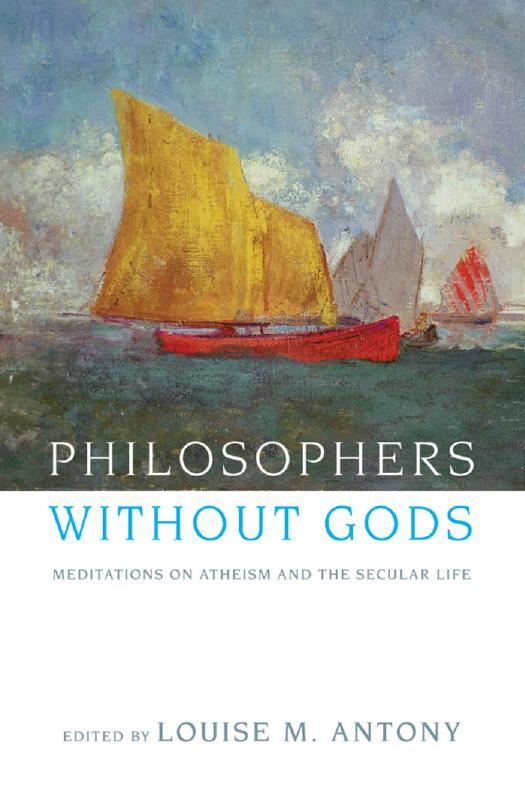Philosophers without Gods: Meditations on Atheism and the Secular Life by Louise M. Antony

Author:Louise M. Antony [Antony, Louise M.]
Language: eng
Format: mobi, epub, pdf
Publisher: Oxford University Press
Published: 2007-06-26T14:00:00+00:00
Creation of Value Ex Nihilo
I intend these last remarks to be sobering. But it would be to misunderstand the true nature and source of value, meaning, and morality to take then as a counsel of despair. Many religious believers maintain that only divine fiat could possibly be the source of universal or absolute morality and objective value. They believe with Dostoyevsky’s Ivan Karamazov that if god is dead, then everything is permitted. But if everything is permitted, then there really is no distinction at all between what is permitted and what is forbidden, no distinction between right and wrong. In the absence of god, we live in a universe utterly devoid of meaning, purpose, and value. Correlatively, if we acknowledge that there really and truly are moral absolutes and objective value in the universe, it is supposed to follow immediately that we must also acknowledge the god who is their sole possible source and author. We simply cannot have it both ways, the theist maintains. Either we view our lives and the universe as governed by moral absolutes and suffused with objective value—and thereby acknowledge the god who is the author of all value and all morality—or we deny the existence of god, and resign ourselves to lives utterly devoid of meaning and value, in a universe governed by no moral law.
This supposed dichotomy is a false one. The universe might possibly contain both absolute morality and objective value, even if there is no god to decree what these shall be. To say this is not to deny that settling just what these might be and just where they might come from in the absence of a divine author is a philosophically daunting task. Philosophers have devoted considerable energy and great ingenuity to just that daunting task. I will not, however, undertake a review of the prodigious fruits of those efforts here. The mistake to which I intend to draw attention is not the mistake of denying even the possibility that absolute morality and objective value might somehow subsist in a universe not authored by any supreme being. The mistake on which I focus is more fundamental and occurs one step earlier in the chain of reasoning we have just been considering. Theists may be particularly prone to it, but they are not alone in making it. The mistake I have in mind is the mistake of supposing that if the universe contains nothing of objective value and no moral absolutes, then human life must, as a consequence, be utterly devoid of meaning and purpose.
Suppose we grant that we live in a finite, merely material universe, containing at its core nothing of intrinsic or objective value, governed by no purpose and no universal or absolute moral law. Still, whatever else the universe does or does not contain, we exist in it and through it. And we are creatures who value things. We do not find or discover value in the universe, as if values were antecedently present in the universe, independently of anything that we do or are.
Download
Philosophers without Gods: Meditations on Atheism and the Secular Life by Louise M. Antony.epub
Philosophers without Gods: Meditations on Atheism and the Secular Life by Louise M. Antony.pdf
This site does not store any files on its server. We only index and link to content provided by other sites. Please contact the content providers to delete copyright contents if any and email us, we'll remove relevant links or contents immediately.
The remains of the day by Kazuo Ishiguro(8961)
Tools of Titans by Timothy Ferriss(8359)
Giovanni's Room by James Baldwin(7313)
The Black Swan by Nassim Nicholas Taleb(7097)
Inner Engineering: A Yogi's Guide to Joy by Sadhguru(6782)
The Way of Zen by Alan W. Watts(6589)
Asking the Right Questions: A Guide to Critical Thinking by M. Neil Browne & Stuart M. Keeley(5751)
The Power of Now: A Guide to Spiritual Enlightenment by Eckhart Tolle(5741)
The Six Wives Of Henry VIII (WOMEN IN HISTORY) by Fraser Antonia(5493)
Astrophysics for People in a Hurry by Neil DeGrasse Tyson(5172)
Housekeeping by Marilynne Robinson(4433)
12 Rules for Life by Jordan B. Peterson(4298)
Double Down (Diary of a Wimpy Kid Book 11) by Jeff Kinney(4257)
The Ethical Slut by Janet W. Hardy(4235)
Skin in the Game by Nassim Nicholas Taleb(4232)
Ikigai by Héctor García & Francesc Miralles(4229)
The Art of Happiness by The Dalai Lama(4118)
Skin in the Game: Hidden Asymmetries in Daily Life by Nassim Nicholas Taleb(3986)
Walking by Henry David Thoreau(3948)
